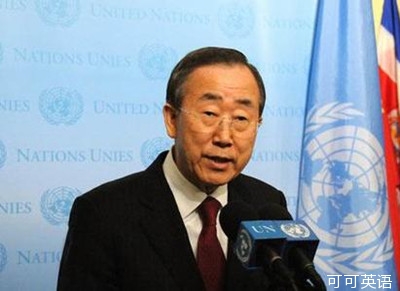Secretary-General’s Message on International Day for the Eradication of Poverty
秘書長消除貧窮國際日致辭
17 October 2013
2013年10月17日
This year’s observance of the International Day for the Eradication of Poverty comes as the international community is pursuing twin objectives: intensifying efforts to reach the Millennium Development Goals, and formulating the next set of goals to guide our efforts after we reach the MDG target date of 2015. This post-2015 agenda must have poverty eradication as its highest priority and sustainable development at its core. After all, the only way to make poverty eradication irreversible is by putting the world on a sustainable development path.
在今年紀念消除貧窮國際日之際,國際社會正在追求兩個目標:加大實現千年發展目標的行動力度,并且再制定一套目標,指導我們在實現千年發展目標的2015年目標日期之后的行動。這個2015年后的議程必須將消除貧窮定為最高優先事項,將可持續發展定為核心內容。因為歸根結蒂,只有推動世界走上可持續發展道路,才能以不可逆轉之勢消除貧窮。
We have much work ahead. While poverty levels have declined significantly, progress has been uneven. Our impressive achievement in cutting poverty by half should not blind us to the fact that more than 1.2 billion people still live in extreme poverty worldwide. Too many, especially women and girls, continue to be denied access to adequate health care and sanitation, quality education and decent housing. Too many young people lack jobs and the skills that respond to market demands. Rising inequality in many countries – both rich and poor -- is fueling exclusion from economic, social and political spheres, and we know that the impacts of climate change and loss of biodiversity hit the poorest the hardest. All of this underpins the need for strong and responsive institutions.
我們仍然任重道遠。雖然貧窮程度已明顯下降,但進展并不平衡。我們已將貧窮人口減半,確實是了不起的成就,但我們不能無視全世界仍有12億多人生活極端貧困的事實。仍然有太多的人、尤其是太多婦女和女童被剝奪獲得適當醫療保健和衛生設施服務、高品質教育和體面住房的機會。仍然有太多的年輕人缺乏就業機會和適應市場需求的技能。在許多國家——包括富國和窮國——不平等情況日益嚴重,使經濟、社會和政治領域的排斥加劇,而且我們知道,氣候變化和生物多樣性喪失造成的影響對最貧窮的人打擊最大。所有這些情況都強調說明,必須建立強大和有回應能力的體制和機構。
We need to do more to listen and act for those whose voices often go unheard – people living in poverty, and in particular among them indigenous people, the elderly and those living with disabilities, the unemployed, migrants and minorities. We need to support them in their struggle to escape poverty and build better lives for themselves and their families.
我們必須更好地傾聽窮人、特別是土著人、老年人和殘疾人、失業者、移徙者和少數族裔等往往沒有話語權的人的心聲,為他們采取行動。他們正在進行艱苦努力,以擺脫貧窮,改善自己和家人的生活,我們必須支持他們。
If we are to realize the future we want for all, we must hear and heed the calls of the marginalized. For the last year, the UN has been doing just that by spearheading an unprecedented global conversation on the world people want. That dialogue must continue – and lead to the active and meaningful inclusion of people living in poverty – as we chart a course to ending poverty everywhere.
要為所有人實現我們希望的未來,就必須傾聽被邊緣化人民的呼喚。在過去一年里,聯合國一直在這樣做,一直在領導進行史無前例的關于世界人民希望的未來的全球對話。在我們確定消除世界各地貧窮的路線之際,必須繼續對話,必須讓窮人積極和有意義地參與對話。
Together, we can build a sustainable world of prosperity and peace, justice and equity – a life of dignity for all.
我們萬眾一心,定能建設一個繁榮、和平、公正和公平的可持續世界,讓所有人過上有尊嚴的生活。

更多精品翻譯素材,敬請關注可可英語。











